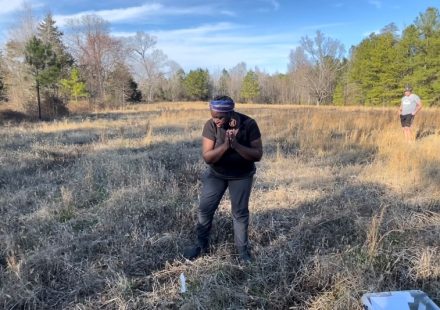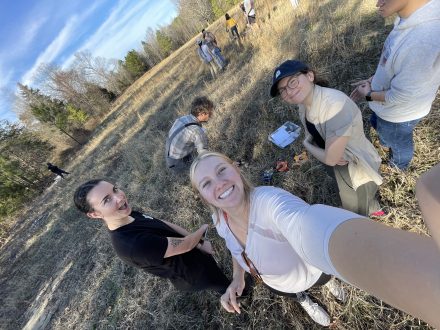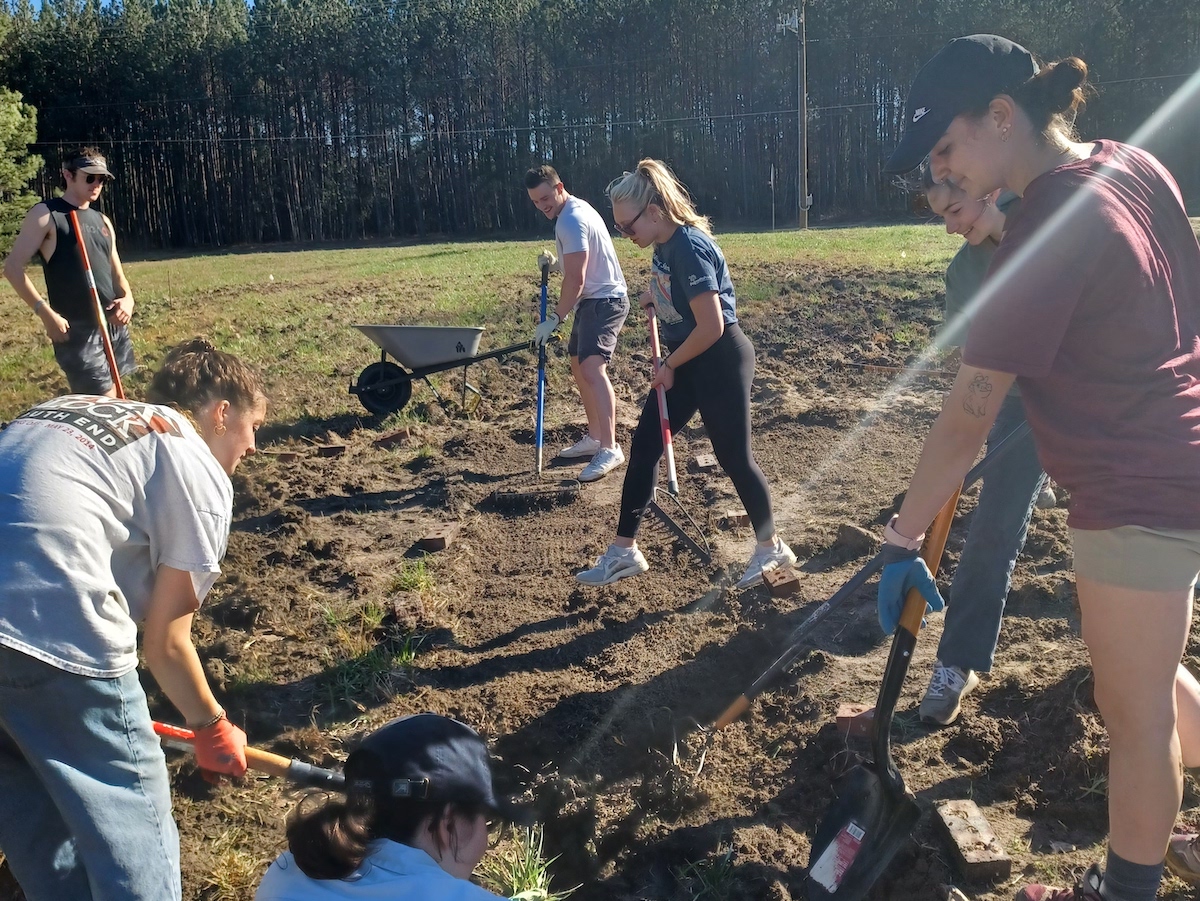Environmental Studies students partner with local small business, Kindred Seedlings Farm, in a community-engaged course this spring to help break ground on a new agricultural endeavor.
Flipping stones, tilling soil and slowly outlining a mandala shape in a grassy field set the stage for a community-engaged project in rural Alamance County.
This spring, students in Sustainable Food Production (ENS 3110) worked alongside LaShauna Austria and Jenn Grimmett to help break ground at Kindred Seedlings Farm. During the first visit as a class, instead of jumping right in with shovels and rakes, members of the class sat in a circle together to talk about the history of the land and their aspirations for this project.

Austria passed around an old photograph from the farm taken by the previous owner and discussed how the string of continuous Black ownership on this piece of farmland is outside the norm for the country. To Austria, this farm represents more than just a place to grow food, it is a place to grow community. The USDA states that only 1% of rural land ownership is in the hands of black people, while about 96% is in the hands of white people, making Black-centered agricultural communities a rarity, especially in the South. At Kindred Seedlings Farm, Grimmett and Austria host healing workshops, grow medicinal herbs and bring their wider Alamance County community together.
“We had the opportunity to learn from LaShauna and Jenn, and our first visit to the farm was essential in our understanding of how this farm was established and where their passion comes from” says Lauren Hill ’24, who was a student in the course this year. “Building this sense of community and mutual respect from the very beginning was important to our work with Kindred Seedlings.”

With each passing week, the students in the class began to see greater and greater impact from their work helping till, rake and form beds. But an even greater sense of camaraderie and clarity in the challenges at the farm began to materialize through the sustained effort.
“Throughout this process, we felt like our input was valued from LaShauna and Jenn when deciding how exactly to go about task delegation or specific steps involved,” Hill stated. “Community-engaged projects create more than just outcomes for partners or students; they help build inertia in developing relationships and initiate unique conversations with community partners” says Jacob Rutz, professor of environmental studies, upon reflection on the project.
The grassy field at Kindred Seedlings Farm now has garden beds and woodchip pathways. Those flipped stones serve as a quartz “heart” at the center of the mandala. “LaShauna and Jenn were so receptive to the class this year and helped challenge our hands, heads and hearts in this partnership with Kindred Seedlings Farm,” Rutz says, “and I am incredibly excited for what will come next.”



